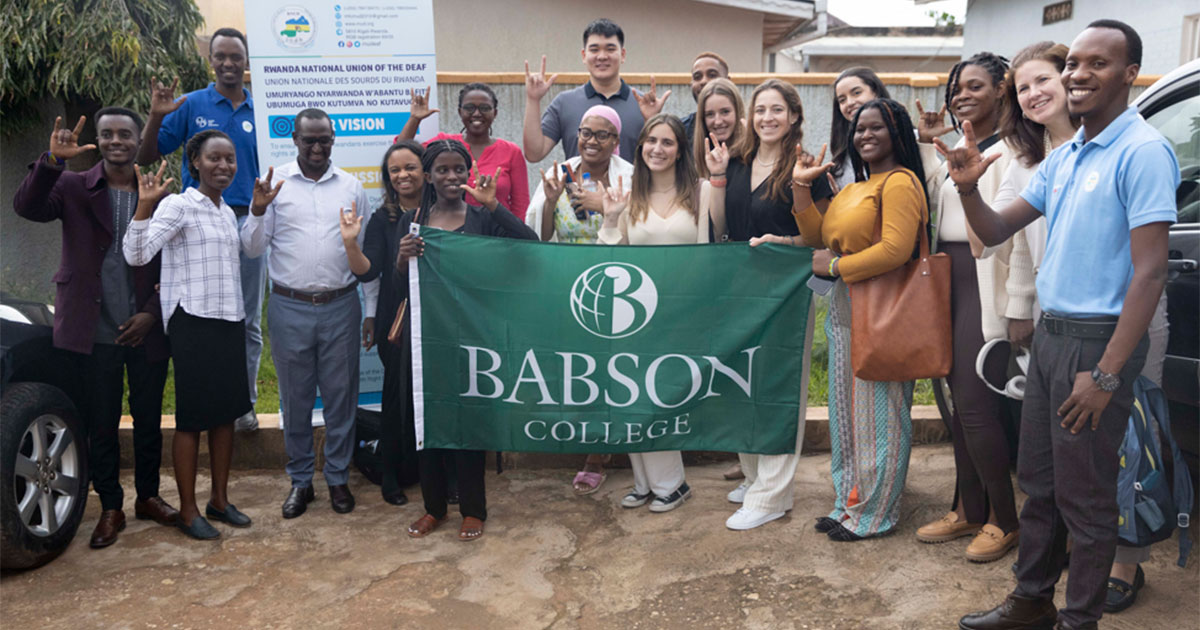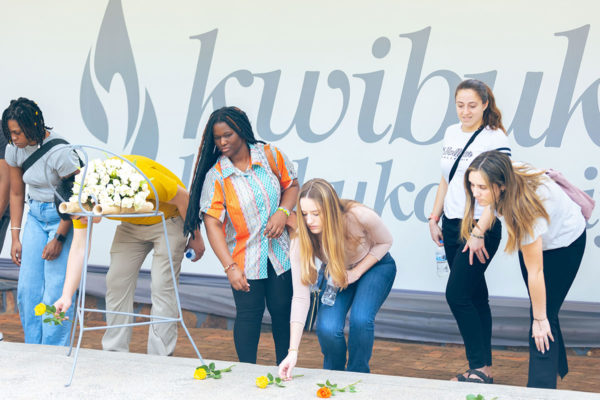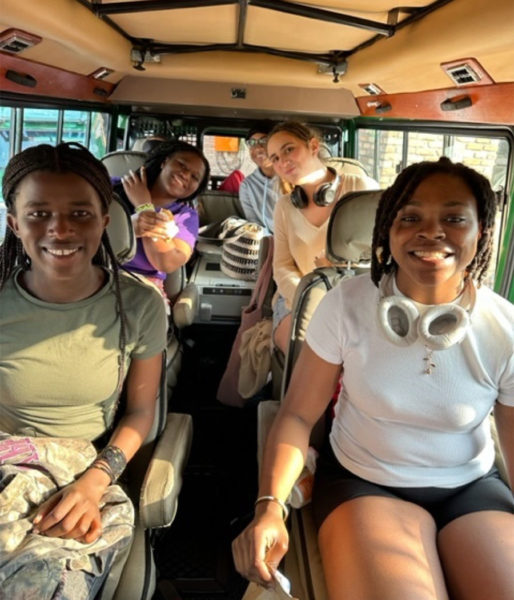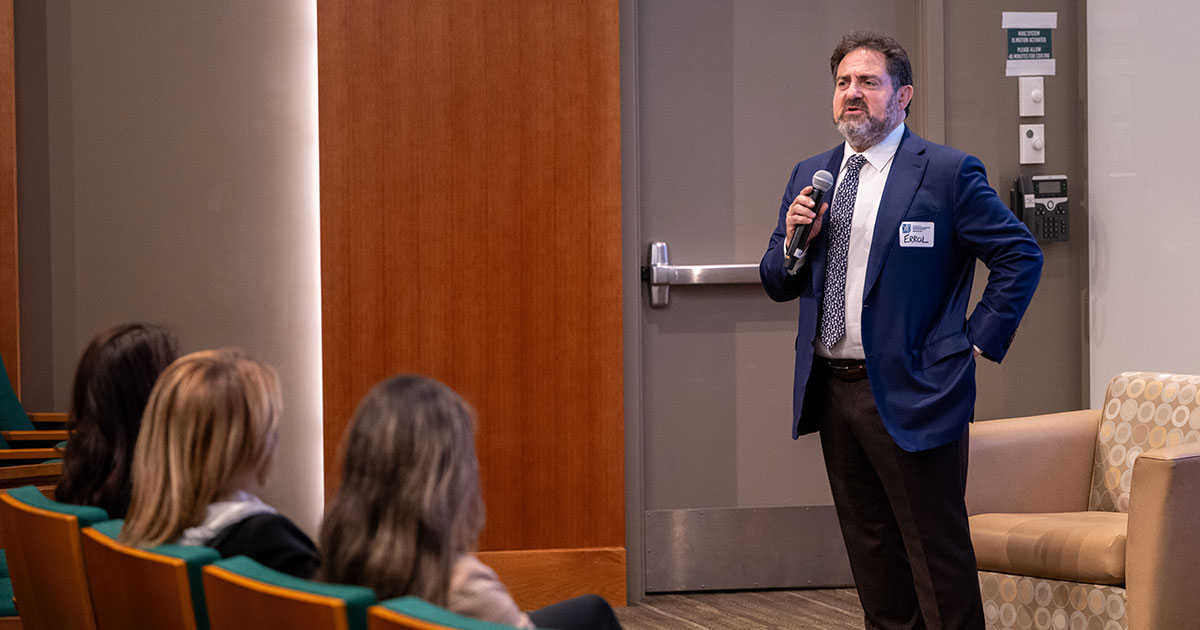Babson Students Work to Improve Health Care in Rwanda

When she thinks about her home of Rwanda, a small country filled with mountains and beauty but also a tragic history, Babson student Peace Ishimwe ’25 thinks about its people.
“Rwanda to me is the people,” she says. “It is the love I see in the people. Everyone takes care of their neighbors.”
The genocide of 1994 may have devastated the country, with some 800,000 people losing their lives, but Rwanda today is a tight-knit place with a strong economy. The country is prospering. “I am so happy for my country right now,” Ishimwe says. “After the genocide, people had to work really hard. For the country to be where it is today, people had to come together.”
Ishimwe is one of 10 Babson students who are participating in the Global Health Innovation Lab, a flagship course of the College’s Kerry Murphy Healey Center for Health Innovation and Entrepreneurship. As part of the course, students took a nine-day trip to Rwanda in January, and they are spending this semester working on health projects with students from the country’s University of Global Health Equity (UGHE).

While in Rwanda, Babson students visited the Kigali Genocide Memorial in the country’s capital.
Those projects cover a range of health issues—tracking rabies, improving hospital transfers, disseminating pregnancy information, enhancing communication for deaf patients—and are meant to leave a lasting impact on Rwanda’s people. Ishimwe is grateful for the students’ efforts.
“For Babson and UGHE to partner, it is an amazing thing to see. It is an outstanding program,” she says. “I am so proud of my teammates who are working on these projects. They are doing amazing things in Rwanda.”
Collaborating Across Continents
Babson students learn by doing in the innovation lab, which is led by Wiljeana Glover, the Healey Center’s founding faculty director and the Stephen C. and Carmella R. Kletjian Foundation Distinguished Professor of Global Healthcare Entrepreneurship.
“It is a way for us to engage them with experiential learning,” Glover says. “It has become the primary place where students not only learn about health innovation and entrepreneurship but also experience it.”
Babson students spend the semester communicating, collaborating, and problem solving across continents with their UGHE counterparts. “I hope that they take away the importance of collaboration, the value of trying new things, and that it is possible to make progress even with problems people feel are intractable,” Glover says. “They can make a difference in a short amount of time.”

Babson students also went on a safari in Rwanda and visited the campus of the University of Global Health Equity.
The semester started with the trip to Rwanda, where students visited the UGHE campus and connected with various healthcare organizations. They also went on a safari and had a sobering visit at the Kigali Genocide Memorial. Marchel Washington ’24 was struck by the country’s food, its close communities, and its lushness. “It’s very beautiful,” says Washington, who is from Florida. “You have these roaring mountains all around you.”
Another student taking the course is Jel Luma ’25, who hails from Liberia. Wanting to help her home during the height of the pandemic, she created an organization there that handed out hygiene products and encouraged people to receive the COVID-19 vaccine. Hoping to continue impacting the lives of Liberians in the future and seeking ideas and inspiration, she signed up for the innovation lab. “I decided to attend this program to come up with solutions to help my country,” she says.
Luma has enjoyed learning about another African country that is different in many ways from her own. Like Washington, she enjoyed the food, though she feels it’s missing one critical element. “It could be spicier,” she says. “Liberian food is more spicy. It’s a West Africa thing.”
‘So Proud of My Country’
As part of the innovation lab, students are working on four health-related projects in Rwanda this semester. One is focusing on improving the efficiency of medical transfers, a process that can be confusing for patients, while another project is looking at the best way to track animals in a rabies reduction initiative. A third project is helping to implement an app that will improve communication between doctors and their deaf patients.
“It is an outstanding program. I am so proud of my teammates who are working on these projects. They are doing amazing things in Rwanda.”
Peace Ishimwe ’25
The final project is striving to make sure expectant mothers, particularly those in rural areas, are receiving reliable medical information. Among other options, the group is considering starting a radio show to reach moms-to-be who may not be able to travel the long distance to a hospital, or who may not trust clinicians as much as their family members. “They are not getting the information they need,” says Ishimwe, who is working on this project.
Ishimwe praised her fellow Babson students for being so open and willing to help in a country, not to mention a continent, that can be often overlooked. “I was so lucky to be with a good group,” she says. “I was so proud. People think that Africa is dark, that there’s nothing going on, that people are hungry. I was feeling so proud of my country and Africa in general.”
Washington hopes to return to Rwanda one day. “Rwanda has had an amazing turnaround,” she says. “It’s a great country. I am looking forward to where it will be in 10 years.”
Posted in Community




